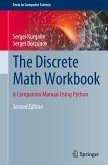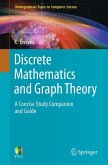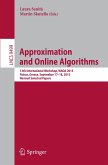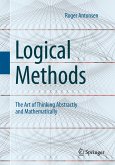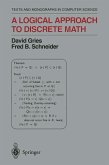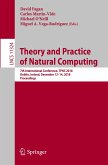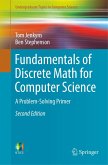This practically-oriented textbook presents an accessible introduction to discrete mathematics through a substantial collection of classroom-tested exercises. Each chapter opens with concise coverage of the theory underlying the topic, reviewing the basic concepts and establishing the terminology, as well as providing the key formulae and instructions on their use. This is then followed by a detailed account of the most common problems in the area, before the reader is invited to practice solving such problems for themselves through a varied series of questions and assignments.
Topics and features: provides an extensive set of exercises and examples of varying levels of complexity, suitable for both laboratory practical training and self-study; offers detailed solutions to many problems, applying commonly-used methods and computational schemes; introduces the fundamentals of mathematical logic, the theory of algorithms, Boolean algebra, graph theory, sets, relations, functions, and combinatorics; presents more advanced material on the design and analysis of algorithms, including asymptotic analysis, and parallel algorithms; includes reference lists of trigonometric and finite summation formulae in an appendix, together with basic rules for differential and integral calculus.
This hands-on study guide is designed to address the core needs of undergraduate students training in computer science, informatics, and electronic engineering, emphasizing the skills required to develop and implement an algorithm in a specific programming language.
Hinweis: Dieser Artikel kann nur an eine deutsche Lieferadresse ausgeliefert werden.
Topics and features: provides an extensive set of exercises and examples of varying levels of complexity, suitable for both laboratory practical training and self-study; offers detailed solutions to many problems, applying commonly-used methods and computational schemes; introduces the fundamentals of mathematical logic, the theory of algorithms, Boolean algebra, graph theory, sets, relations, functions, and combinatorics; presents more advanced material on the design and analysis of algorithms, including asymptotic analysis, and parallel algorithms; includes reference lists of trigonometric and finite summation formulae in an appendix, together with basic rules for differential and integral calculus.
This hands-on study guide is designed to address the core needs of undergraduate students training in computer science, informatics, and electronic engineering, emphasizing the skills required to develop and implement an algorithm in a specific programming language.
Hinweis: Dieser Artikel kann nur an eine deutsche Lieferadresse ausgeliefert werden.
"The content is pretty comprehensive. ... The writing is well-done and the text is nicely edited. ... it could be very effectively used for self-study. The discovery aspect of problems and solutions can be much more engaging than straight forward reading of text. The reader is also able to build up their knowledge, starting with the problems with short answers and moving to those that are more involved with proofs or longer solutions." (Tricia Muldoon Brown, MAA Reviews, September 20, 2021)


